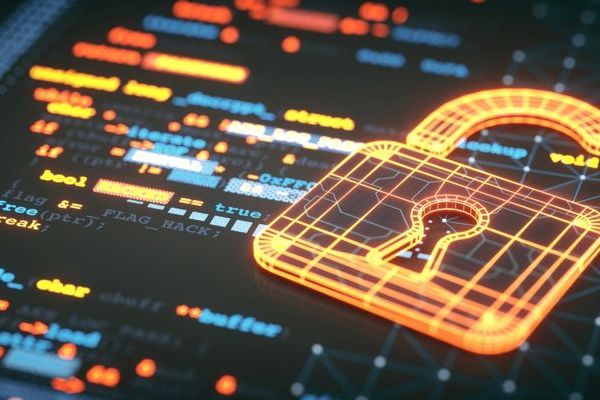Are cyber certifications and accreditations the virtual equivalent of the Maginot Line?
Are cyber certifications and accreditations the virtual equivalent of the Maginot Line?
History has taught us that static defensive postures became obsolete many years ago. Tying yourselves to rigid routines, in a stationary position, makes it easier for your enemies to predict and disrupt your patterns.
To counter the threat from a resurgent Germany and determined to avoid a repeat of the horrors of trench warfare France built the Maginot Line along their shared border. Hundreds of kilometres long and in parts 25 km deep, it was seen as the ultimate deterrent while being hugely expensive in terms of men and material.
Recognising the defensive strength of the fortifications, the invading German force just went around them, incurring few causalities and highlighting the effectiveness of manoeuvre warfare – the threat the French had analysed and mitigated against had evolved and moved forward.
How does this relate to cyber security and resilience?
Cyber certifications and accreditations abound but do these frameworks actually help or hinder effective security and risk management?
Recent breaches have involved organisations that are ISO27001 and CE+ certified, yet still, they got hacked.
Having frameworks and accreditations are useful and have their place but are these certifications and accreditations the cybersecurity equivalent of the Maginot Line – a static line of defence in a dynamic digital battlefield?
It’s crucial to recognise the significance of frameworks and accreditations in the cyber security landscape. However, depending solely on them for protection is similar to France’s reliance on the Maginot Line as its primary defence strategy in World War II – a strategy that proved inadequate. In the same way, companies cannot depend exclusively on these certifications to safeguard their digital terrains.
Nobody is going to win this cyber war, but not losing will require manoeuvrable defences that can respond to threats in real time. After all, the battlefield landscape is constantly shifting, with new attacks emerging every day. Those who can anticipate threats before they emerge and adapt their strategies on the fly will minimise the disruption to their business when the inevitable attack comes.
In other words, the modern cyber security strategy must mirror the tenets of modern warfare – agility, adaptability, and constant intelligence.
Those who cling to static defences like Maginot Line soldiers will find themselves easily outmatched. Survival in the digital age requires a commitment to continuous improvement and evolution. Relying solely on these fixed defences offers a deceptive sense of safety.
This analogy prompts a significant question for Information Security and Operational Risk Leaders:
Are your cyber defences merely symbolic fortifications, or are they truly equipped to adapt and respond to emergent cyber security threats?
The Maginot Line, despite its formidable appearance and substantial investment, was bypassed with alarming ease by the German forces during World War II. This historical lesson serves as a stark reminder that static defences, no matter how robust, can become redundant if they fail to evolve in step with changing tactics and technologies.
In the world of cybersecurity, this translates to a need for a dynamic, integrated defence strategy, rather than a reliance on static certifications and accreditations.
Certifications such as ISO27001 and CE+ are undoubtedly valuable. They provide a structured framework for organisations to manage their information security and demonstrate a commitment to best practices. However, the pitfall lies in perceiving these certifications as a cure-all.
Being certified can instil a false sense of security, leading to complacency.
The reality is, cyber threats are continuously evolving, often outpacing the static frameworks of certifications.
Certifications focus on compliance rather than resilience. They ensure that an organisation meets a certain set of criteria at a given time, but do they equip the organisation to adapt and respond to unforeseen threats?
The answer is not always positive. Cybersecurity is not a one-time achievement but an ongoing process of adaptation and improvement.
An integrated defence strategy, akin to manoeuvre warfare, is needed. This approach involves continuous monitoring, updating, and evolving of cyber defence tactics. It requires organisations to stay vigilant, anticipate new forms of attacks, and adapt their strategies accordingly.
Just as the German forces in World War II manoeuvred around the static defences of the Maginot Line, modern cyber attackers constantly find new ways to circumvent established security measures. An integrated defence strategy recognises this and focuses on agility and adaptability.
Although cybersecurity certifications and accreditations play a pivotal role, they should be viewed as integral components rather than the complete framework of a cyber defence strategy.
The lesson from the Maginot Line is clear: do not let your defences become static.
In a world where cyber threats are constantly evolving, your defensive posture must be equally dynamic, integrating continuous learning, adaptation, and resilience into the very fabric of your cybersecurity approach.
Only then can you truly fortify your organisation against the sophisticated cyber threats of today and tomorrow.
Click here to read the full insight.
Cyber Resilience updates
Sign-up to get the latest updates and opportunities from our Cyber Resilience programme.





